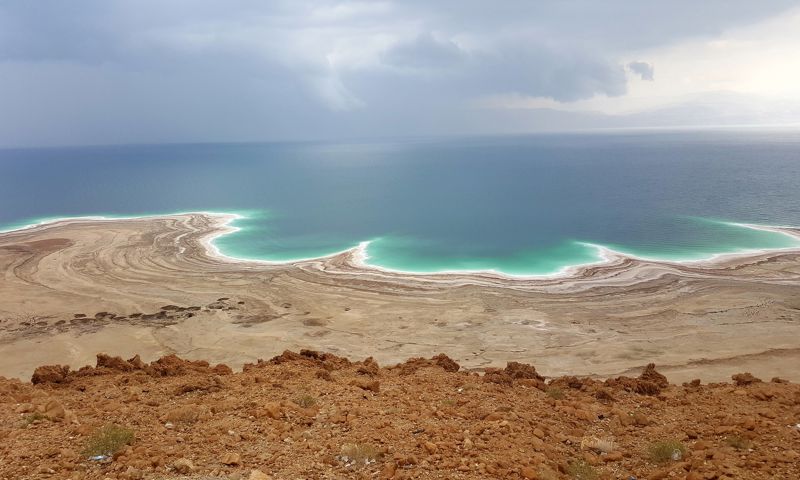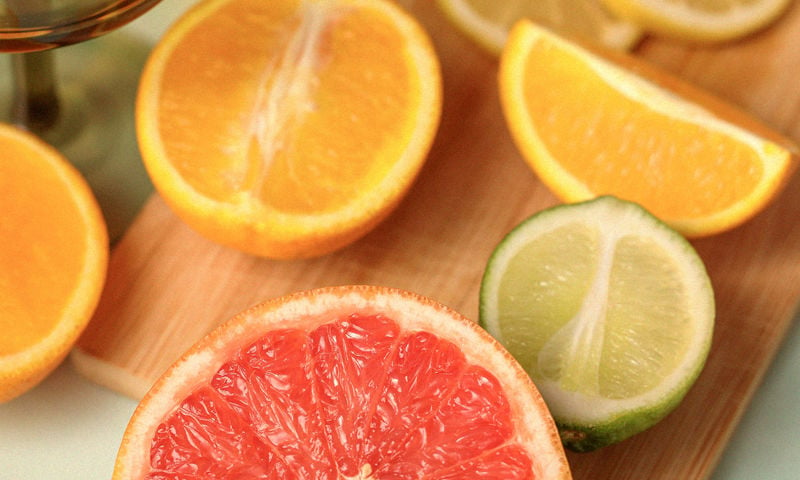If you’ve been lucky this summer, you’ve spent plenty of time at the beach, soaking up the sun, kicking back and letting the water wash away any stresses. That salty ocean water might actually be washing away more than you realise.
 The salty seas
The salty seas
Saltwater is everywhere. In fact 70% of the Earth is saltwater. And if you haven’t accidentally swallowed some at one point or another, you’re one of the lucky ones. The unfortunately named Dead Sea contains the saltiest water on the planet, with a salt content approximately 8.6 times higher than that of any other ocean. According to Dead Sea Spa Care the water contains an impressively high concentration of 21 minerals, 12 of which can’t be found in any other sea in the world. And for thousands of years people have used the water of the Dead Sea to treat their various ailments, from stress to psoriasis. The ancient Greeks knew of the rejuvenating power of mineral rich waters and Cleopatra was even said to have lusted after the mud of the Dead Sea to keep her skin beautiful. But these days we have science and doctors that can explain to us exactly why this water is so good.
The hydration factor
Logic would suggest that saltwater should dehydrate your skin. After all, finishing your large box of salted popcorn tends to leave your mouth feeling dry as the Gobi desert. But swimming in the ocean is recommended by dermatologists as a way to manage eczema and psoriasis.
Swimming in the ocean may improve moisture retention making the skin supple and stronger supple. Being rich in mineral salts like iodine and sodium, ocean water can also act like a natural antiseptic for the skin.
Scrub a dub
We know salt as an exfoliating agent, commonly used in scrubs to gently remove dead skin and make way for new and healthy skin cells. But the moisturising abilities of mineral salt actually mean there are far more uses than just as an exfoliator.
"Salt is almost like those little goldfish in some weird pedicure place. It has a sort of instantaneous effect of taking dead skin cells off the surface of the skin, leaving the skin smoother and more able to absorb moisture and nutrients." Yael Alkalay
Where saltwater has the edge over those little goldfish is its ability to help our bodies absorb moisture. A dip in the ocean leaves your skin bouncy and ultra-moisturised,. It’s this smooth and natural feeling for the remainder of the day that skin creams and scrubs try so hard to emulate.
The watch outs
There are some things to stay aware of when it comes to using the ocean as part of your health regime. The obvious being sun safety; if you’re spending extended hours at the beach, no amount of rejuvenating saltwater is going to make up for the damage the Australian sun can have on your skin. Always remember to “Slip, Slop, Slap, Seek and Slide”! But there are other less obvious cautions that can be easily overlooked.
Where saltwater makes your skin better at absorbing moisture, it actually has the opposite effect on your hair. Your hair needs water to stay healthy and elastic, but the salt content of ocean water sucks this moisture from hair, leaving it dry and brittle. But never fret, we’ve got your back. There are ways to get the best out of saltwater without costing the health of your hair.
- Using Leave-In Conditioner will help your hair retain its moisture throughout the day. A spray formula that you can keep in your beach bag is definitely a must have.
- Treat your hair with protective SPF hair cream before heading to the beach and remember to cover your part. Look after your scalp. Better yet, wear a hat as much as you can.
 Sooo, anyone for the beach?
Sooo, anyone for the beach?
So if you needed another excuse to get down to the water while it’s still warm, tell people you’re going for the saltwater. It’ll leave you feeling refreshed, clean and hydrated, and your skin will love you for it.
Key tips
- Ocean water has historically been used as a remedy for skin and health ailments
- The minerals and antiseptic properties of ocean water can be useful in the management of skin issues like eczema and psoariasis
- Look after your skin when at the beach and slip, slop, slap, seek and slide.



